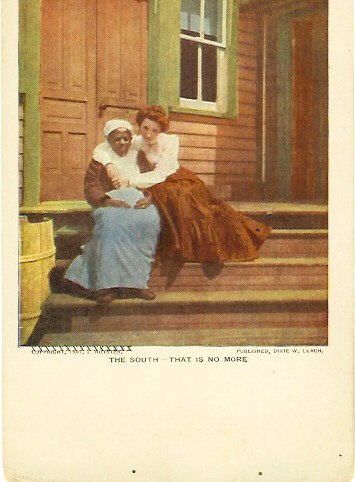The States of the northeast in 1860 were better termed former-slave States, a region that eradicated slavery by statute and sold its slaves to work Southern plantations. It was not a hospitable place for free blacks as New York passed Jim Crow laws in the 1820s to intimidate black voters, and Frederick Douglas complained of the intense racism against his race at Philadelphia.
Bernhard Thuersam, Chairman
North Carolina War Between the States Sesquicentennial Commission
www.ncwbts150.com
"The Official Website of the North Carolina WBTS Sesquicentennial"
Fictionalized Northern Views of the South:
“There has been a tendency, stubbornly persistent even in our time, to mistake the planter aristocracy for the entire South. It is therefore important to point out that if one could identify an average Southerner of the eighteen-fifties, statistics would demand that he be, at least by plurality of numbers, a non-slaveholding white farmer who cultivated a few acres with the help of his wife and children. A small nucleus, about 4 percent of all slaveholders, held on hundred or more slaves. Yet it was the large slaveholder, fictionalized by partisan pens, that has constituted popular portraits of the South.
Moreover, a sense of history was conspicuously lacking in antebellum Northern views of the South. It is not inappropriate here to recall that the beginnings of slavery coincide with the first English settlements in America. During the seventeenth century slave-traders of many nations joined in establishing in America, North and South, an institution which was not to become “peculiar” in anyone’s eye’s for nearly two centuries.
No generation was alone responsible for the enslavement of men; but no generation could escape the mounting social tensions and moral complexities that accompanied its growth. By the time prevailing ideologies of the world had become expressly opposed to slavery, most Southerners had come to consider it indispensible to either their economic or their social well-being. To understand the tragedy of the South is to realize that it is inescapably America’s tragedy.”
(The South in Northern Eyes, 1831 to 1861, Howard R. Floan, McGraw-Hill, 1958, pp. viii-ix)
Fictionalized Northern Views of the South


No comments:
Post a Comment